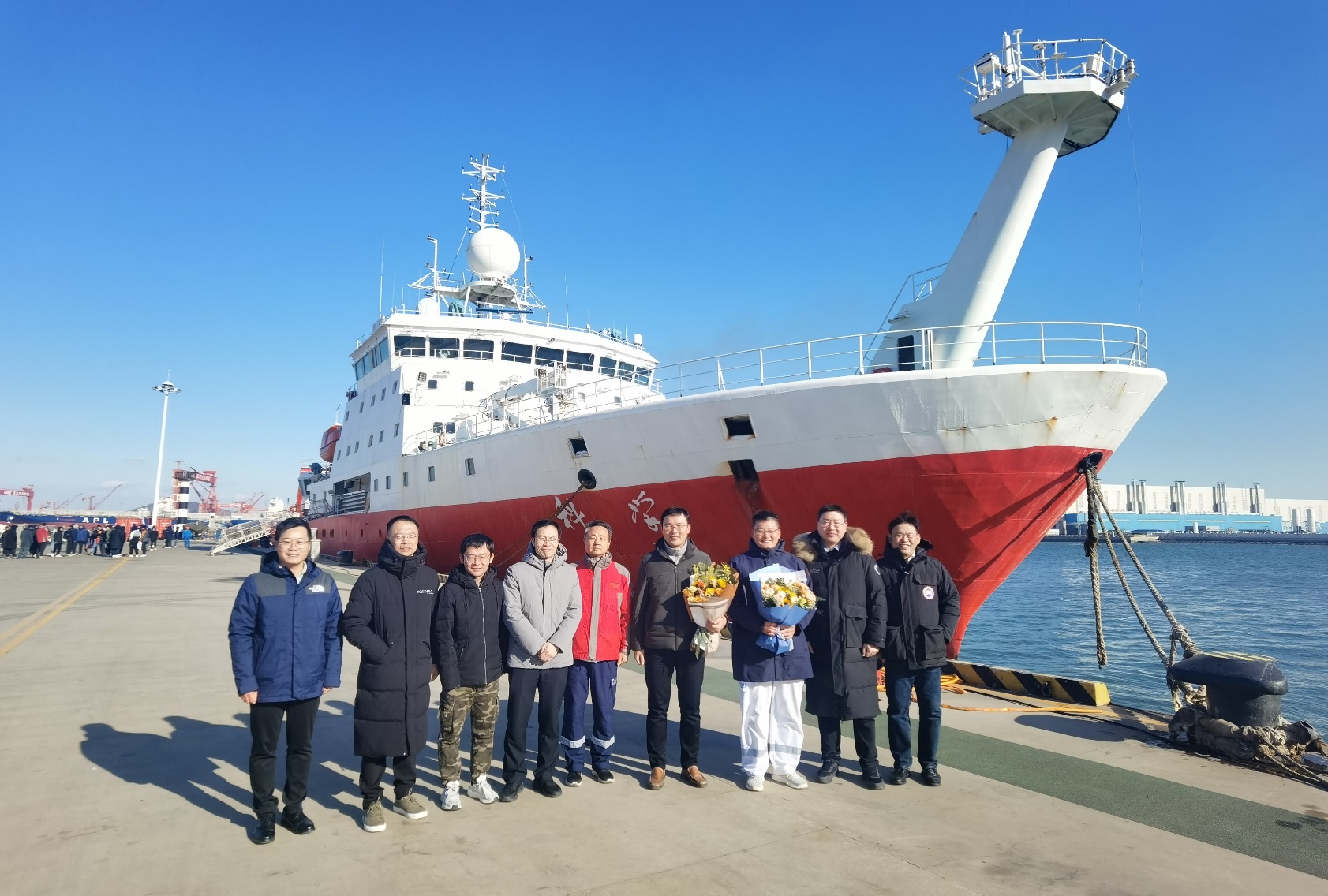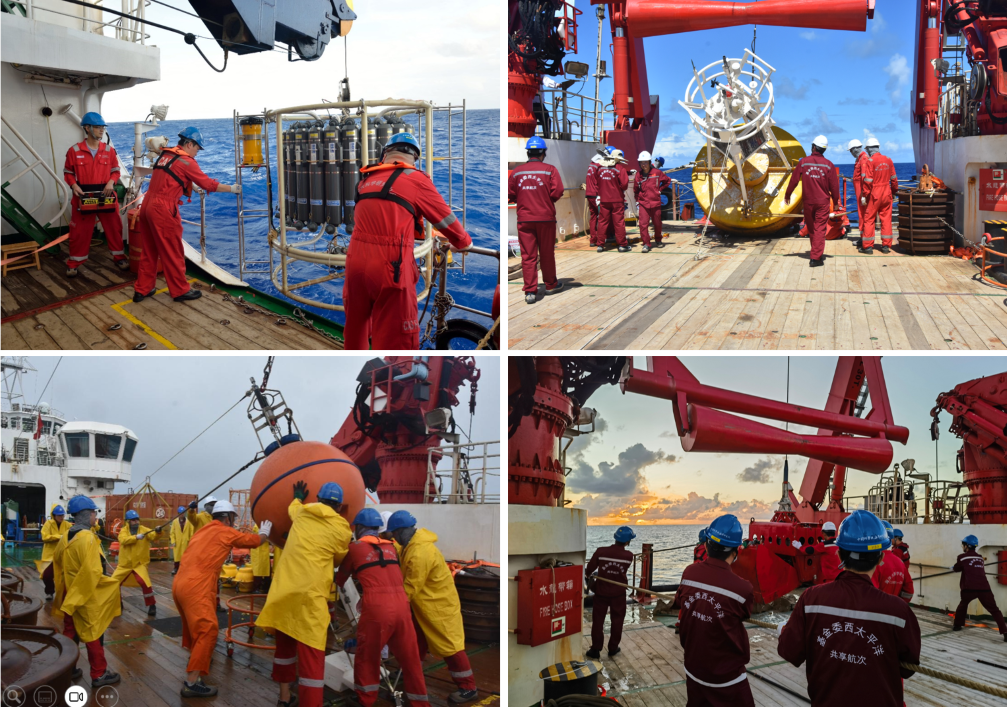On January 23, the "Science" research vessel successfully completed the "2022 Annual West Pacific Scientific Expedition and Experimental Research" at sea, and safely arrived at the West Coast campus pier of the Institute of Oceanology, Chinese Academy of Sciences.
The cruise departed from Qingdao on November 20, 2023, lasting 65 days, covering a total of more than 9,000 nautical miles. It carried 33 national Natural Science Foundation projects from 13 institutions, including the Institute of Oceanology, Chinese Academy of Sciences, the South China Sea Institute of Oceanology, Chinese Academy of Sciences, the Second Institute of Oceanography, Ministry of Natural Resources, China University of Ocean and Technology, Xiamen University, Fudan University, Zhejiang University, Tianjin University, Shanghai Ocean University, and Guangxi University. The cruise was led by Zhang Linlin, a researcher at the Institute of Oceanology, Chinese Academy of Sciences, who served as the Chief Scientist of the cruise.

This cruise surveyed areas covering the western boundary current region of low latitudes in the Pacific Ocean and the core area of the western Pacific warm pool. The cruise completed 4 transects with 96 fixed stations for observation, with a total of more than 280 operations including profiles of temperature, salinity, and depth parameters, water sampling at constant pressure in the deep sea, microplastic trawling operations, TV grab operations, turbulence observation operations, in-situ filtering operations, deep-sea Argo operations, as well as operations for surface currents and meteorology. Additionally, more than 10 sets of deep-sea buoy recovery and deployment operations were successfully completed to maintain and optimize China's deep-sea scientific observation network that has been successfully constructed in the western Pacific in recent years.

According to Wang Fan, the leader of the cruise project and the Director of the Institute of Oceanology, Chinese Academy of Sciences, some of the operation content and collected parameters at key transects referenced the international GO-SHIP standard. These data provided internationally standardized field observation data and samples for West Pacific scientific research. The acquisition of these data and samples provides important guarantees for solving key scientific issues such as multi-scale dynamic processes in the western Pacific Ocean and their climate and ecological effects. It also provides strong support for further consolidating China's leading position in the "Northwest Pacific Ocean Currents and Climate Experiment (NPOCE)" international cooperation program and promoting interdisciplinary scientific research on the western Pacific Ocean.